Энн Маккефри - The P.E.R.N. Survey
Здесь есть возможность читать онлайн «Энн Маккефри - The P.E.R.N. Survey» весь текст электронной книги совершенно бесплатно (целиком полную версию без сокращений). В некоторых случаях можно слушать аудио, скачать через торрент в формате fb2 и присутствует краткое содержание. Год выпуска: 1991, Жанр: Фэнтези, на английском языке. Описание произведения, (предисловие) а так же отзывы посетителей доступны на портале библиотеки ЛибКат.
- Название:The P.E.R.N. Survey
- Автор:
- Жанр:
- Год:1991
- ISBN:нет данных
- Рейтинг книги:3 / 5. Голосов: 1
-
Избранное:Добавить в избранное
- Отзывы:
-
Ваша оценка:
- 60
- 1
- 2
- 3
- 4
- 5
The P.E.R.N. Survey: краткое содержание, описание и аннотация
Предлагаем к чтению аннотацию, описание, краткое содержание или предисловие (зависит от того, что написал сам автор книги «The P.E.R.N. Survey»). Если вы не нашли необходимую информацию о книге — напишите в комментариях, мы постараемся отыскать её.
The P.E.R.N. Survey — читать онлайн бесплатно полную книгу (весь текст) целиком
Ниже представлен текст книги, разбитый по страницам. Система сохранения места последней прочитанной страницы, позволяет с удобством читать онлайн бесплатно книгу «The P.E.R.N. Survey», без необходимости каждый раз заново искать на чём Вы остановились. Поставьте закладку, и сможете в любой момент перейти на страницу, на которой закончили чтение.
Интервал:
Закладка:
Ben, as a geologist with some secondary background in chemistry, could cope with the planet’s basic pulse-its air and landmasses, magnetic fields, mass-cons, continental plate structure, tidal patterns, temperatures, the general topography, and, especially, any seismic activity-and evaluate the history of the planetary surface for at least the past million years. If the survey proceeded without glitches, he’d have a go at the longer-term history, attempting to detect signs of magnetic reversals and to determine if-and when-there had been any large extinctions.
Liu, as nexialist, would investigate whatever remaining aspects of this planet they had time to consider. That is, if the probes brought back reports that would make a visit worthwhile. Numero Tres did look promising, but Shavva had discovered that looks could be very deceiving in this business.
The probe sent back reports that were skeptically regarded as being too good to be true.
“Good balance of land and water masses,” Liu said. “Usual ice caps, mountains, good plains areas Parallels Earth in many respects. Initial P.E. for starters, Castor.”
“Atmosphere is breathable, slightly above normal in oxygen content: gravity slightly lower at zero-point-nine on the scale,” Ben contributed. “Considerable volcanism in that chain of islands extending from the southern hemisphere, nothing major at the moment. Rather a nice little planet, actually.”
“Plenty of green stuff down there,” Shavva said. “What the hell?” she added in puzzlement as the computer began decoding topography. “Have a gawk at these crazy circles!”
The probe was now on a low-altitude vector, sending back more-detailed sections of the terrain of the southern continent. Clearly visible were groups of circular patches, like ripples overlapping each other but held frozen on the planet’s surface.
“Ever see anything like this before, Ben?” she asked, fervently regretting the missing Flora Neveshan, with her years of experience as a xenobotanist.
“Can’t say as I have. Looks like some sort of local fungus on a huge scale. Seems to hit all vegetated areas, not just what appear to be grasslands.”
“Fairy rings?” Shawa suggested very brightly.
“Ha! What esoteric stuff you been reading recently?” Ben gave her a jaundiced stare.
“Whatever it is, be bloody careful, will you?” Castor demanded bitterly. “We’ve got two more systems to work, and I’m running out of initials.”
“Thin red line of ‘eroes?” Ben asked, trying to inject some lightness into Castor’s mood. He knew that Castor would forever fault himself for the deaths of Asturias and Neveshan. He was the most experienced climber of the group and would very likely have prevented the disaster if he’d been downside. The fact that no one blamed Castor did not assuage his feelings of guilt.
Shavva set the shuttle down on the great plain of the eastern part of the southern hemisphere, several hundred meters from one cluster of the rippling circles they had observed. She, Ben, and Liu went through the routine landing procedures, confirming atmosphere, temperature, and wind velocity before exiting, garbed in their cumbersome protective suits. At least they needn’t resort to face masks and the back-wrenching burden of oxygen canisters. They all drew in deep lungfuls of the fresh air that a stiff breeze flung at them.
“Good stuff,” Shawa said with a pleased grin. “No L.A., this one.” Suddenly, she felt an obsession for this planet to check out as habitable. From outer space it had had the look of the old Earth pictured in historical tapes. Such reassurance could be bloody, and bloodily, deceptive, she reminded herself, but that didn’t keep her from wishing!
The grassy plain was springy underfoot, and their heavy boots released sweet, pungent odors from the bruised vegetation. Silently they walked over to the first of the ripples, and Ben and Liu hunkered down to eyeball it. Shavva took out a sampling probe and inserted it deftly into the soil closing the lid as soon as she had retracted it. Liu poked a plasgloved finger into the hole, fiddled with the dirt that adhered, and dropped the grains carefully back into the hole.
“Funny. Feels like dirt. Common everyday dirt. Grainy. Rough, uneven.”
“The empirical test!” Ben chuckled.
“Let’s get started, guys,” Shawa said. “We’ve only got ten days to do eight people’s work and clear a planet.”
“A snap!” Ben replied, grinning impudently. “I’ll start by switching on my geologist’s brain.” He moved off to the next arc of the ripple and collected more samples of the discolored ground. “Hey, we’ve got ecological succession here,” he added suddenly, pointing to portions now speckled with new growth.
Shavva and Liu came to his side to see the promising green tufts.
“Great wind systems on this planet. They’d be strong enough to carry seed as well as dirt,” Shawa remarked, facing into the stiff breeze. “’Nother few decades and this’ll all be grass, or whatever, again. Well, we’ll see what the samples say. Take some right by that new growth, will you, Ben? See what, if anything, is aiding the regeneration.”
That first day they concentrated on dirt and vegetation samplings from the plain, moving on to other sites throughout the day, working from east to west to utilize as much daylight as possible.
They took several deep cores in the rich soils of the southern plains and grasslands and, with more effort, drove rock-sampling cores. Inland and south they went, to points that had shown possible ore sites, though the initial metallurgy probe readings did not suggest that the planet had any easily accessible ore or mineral wealth. They made their first nightfall on a vast headland, on the sands of a great cove.
Marine life seemed to be diverse, with enough interesting variations of exoskeletons and sea vegetation alone to give a marine biologist a lifetime employment. Liu scooped up samples of the red and green algae and found some interesting fungi on the shoreline, some with visible movement. Larger marine forms were occasionally visible in the deeper waters of the cove at dusk, a common feeding time. The explorers spent a pleasant evening taking samples and specimens along the seashore Liu had found enough dead fronds and branches to build a fire on the sands. Shedding their protective suits, they ate their evening rations around the fire-occasionally managing to capture various types of insectoids drawn to the bright flames.
“Possibly the pollinators we need,” Liu mused as he peered into the tube of captured insectoids. One had paused in its frantic flight so that its double wings were visible. “Little buggers. I’d feel a lot better, though, if there were bigger things than these to contend with. The probe pictures should have shown us some sort of ruminants or grazers on these grasslands.”
“What about those large flying things we saw awhile back?” Ben asked, and then snorted. “They looked like airborne barges, squat and fat, and full.”
“Yeah, but what do they eat? And what eats them?” Liu asked morosely.
“Maybe we’re between ice ages?” Shawa offered hopefully. She really didn’t want to find fault with the planet, though she knew that was a totally unprofessional attitude to take-and dangerous, as well. But she couldn’t suppress the feeling of “coming home” that was beginning to color all her perceptions of this world.
Liu snorted, unconvinced. “Ecology is right for ‘em. They should be here.”
“If they are, we’ll find ‘em. If we don’t. .” Shavva shrugged philosophically.
The next day they ventured as far as the ice cap in the southern hemisphere, taking samples of the frozen crust and as many layers of soil as the deep corer could manage to reach. Then they turned to the winter-held north. By then, Liu had become a bit paranoid about the lack of larger life-forms. So far, all they had seen were some reptiloids, scaled and basking.
Читать дальшеИнтервал:
Закладка:
Похожие книги на «The P.E.R.N. Survey»
Представляем Вашему вниманию похожие книги на «The P.E.R.N. Survey» списком для выбора. Мы отобрали схожую по названию и смыслу литературу в надежде предоставить читателям больше вариантов отыскать новые, интересные, ещё непрочитанные произведения.
Обсуждение, отзывы о книге «The P.E.R.N. Survey» и просто собственные мнения читателей. Оставьте ваши комментарии, напишите, что Вы думаете о произведении, его смысле или главных героях. Укажите что конкретно понравилось, а что нет, и почему Вы так считаете.

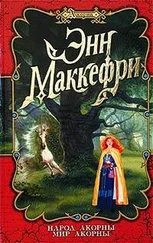
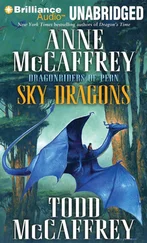
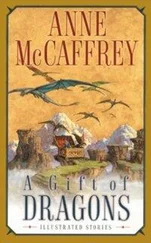
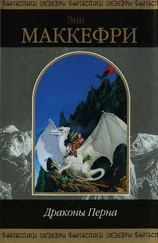
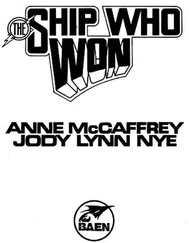
![Энн Маккефри - Неразлучная пара [= Неразлучные]](/books/252704/enn-makkefri-nerazluchnaya-para-nerazluchnye-thumb.webp)
![Энн Маккефри - Хрустальная певица [= Певцы Кристаллов]](/books/332404/enn-makkefri-hrustalnaya-pevica-pevcy-kristallo-thumb.webp)